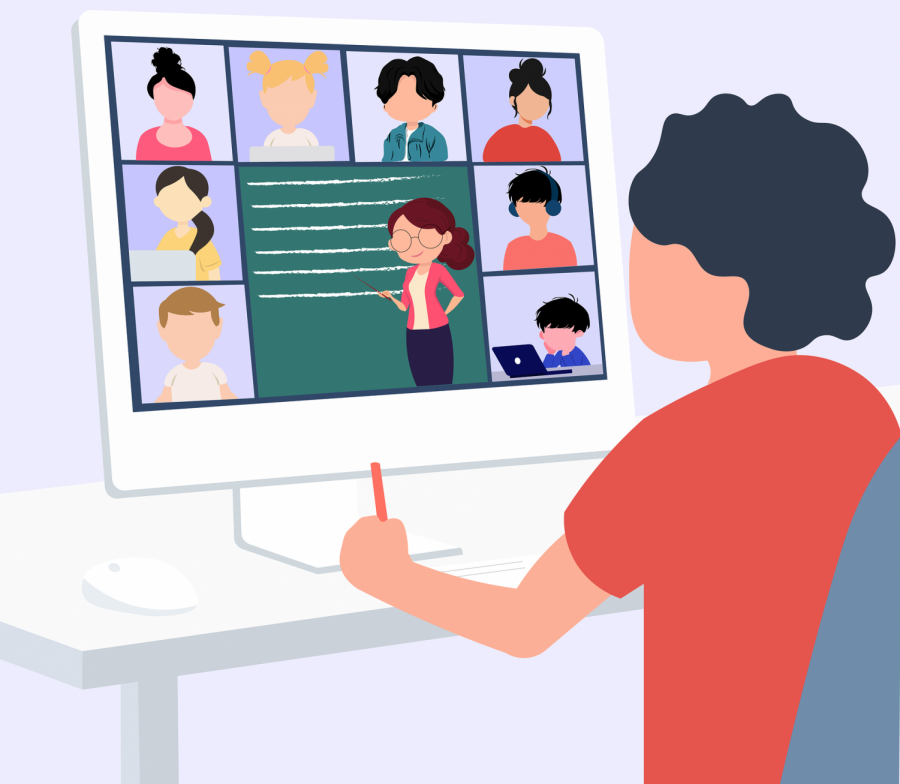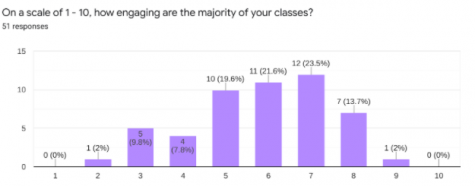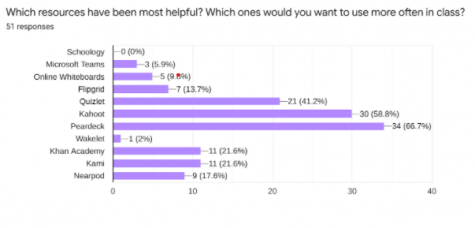An Open Letter to the Teachers of Roosevelt
November 24, 2020
Dear Wonderful Teachers of Eleanor Roosevelt High School,
To start, an acknowledgement of the difficulties you face while teaching your students: You have had to redesign your plans to fit an online model. You may be literally talking into an empty room. And no matter how much you plead, nobody will talk (except for that one kid who only answers after they realize none of their peers are willing). A poll was conducted with a sample of 51 ERHS students to record the students’ response to their classes and what they believe teachers could do to improve them.
Let’s be honest, sitting in front of a glaring computer for six plus hours is utterly exhausting. Add to that the maddening distance between instructors and students, and it’s no surprise that finding ways to keep students engaged is challenging. The poll asked students, “On a scale of one to ten, how engaging are the majority of your classes?” In response, 62 percent rated a six or above. That’s impressive given the circumstances. Still, teachers could better simulate their classrooms with a few suggestions from students. Firstly, in a vote of the most helpful online resources, Kahoot and Peardeck were the most popular. One student said, “Peardeck and Kahoot makes it feel like you’re actually doing something and it’s fun.” This goes to show that having interactive lessons, as opposed to plain lectures, may boost student engagement. Another student’s suggestion was to, “Let us have a conversation with other students once in a while.” On the poll, 66.7 percent of students agreed that they would benefit from communicating with peers. As talking with peers allows students to express their ideas about a lesson, this idea only reinforces the importance of interactive classes.
Another pressing problem with online learning may be the overwhelming amount of work students are forced to complete each day. Thirty-one students believe that the dramatic increase in work is because school is online. A 2013 study, co-authored by Stanford University researcher Denise Pope, found that excessive homework can cause health issues such as headaches, exhaustion, sleep deprivation, weight loss, and stomach problems. On the poll in question, 30 ERHS students admitted that the rise in schoolwork has negatively affected their mental health. So teachers, when assigning homework or any work on a strict deadline, please be mindful of how overload can affect your students.
Before this letter ends, the teachers of Roosevelt deserve another praise. Guess how many students said that they have easy communication with their teachers? 82 percent. That is amazing. When asked what could make communication easier, many responses were along the lines of one student: “I don’t know. I’ve had no problem communicating with my teachers this year.” So, if there’s one aspect strengthened from distance learning, it’s student-to-teacher communication.
On this note – on behalf of the 51 students who so generously filled out the poll, and the hundreds of students it ideally represents – we hope you consider our thoughtful observations and constructive criticisms to improve your classrooms.






